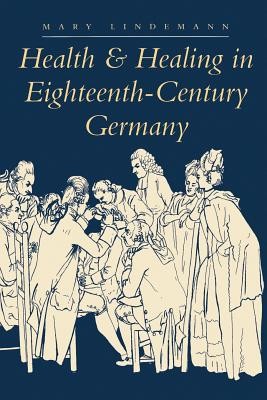
- We will send in 10–14 business days.
- Author: Mary Lindemann
- Publisher: Johns Hopkins University Press
- ISBN-10: 0801867851
- ISBN-13: 9780801867859
- Format: 16.3 x 22.6 x 3.4 cm, softcover
- Language: English
- SAVE -10% with code: EXTRA
Reviews
Description
Winner of the William H. Welch Medal from the American Association for the History of Medicine
Although the physicians and surgeons of eighteenth-century Germany have attracted previous scholarly inquiry, little is known about their day-to-day activities--and even less about the ways in which those activities fit into the economic, political, and social structures of the time. In this groundbreaking work, Mary Lindemann brings together the scholarly traditions of the history of structures, mentalities, and everyday life to shed light on this complex relationship.
Opening with a discussion of the interplay of state and society in the independent German state of Braunschweig-Wolfenbüttel, Lindemann explains how medical policy was "made" at all levels. She describes the striking array of healers active in the eighteenth century: from physicians to all those consulted in medical situations--friends and neighbors, executioners and barber-surgeons, bathmasters, midwives, and apothecaries. She surveys the available vital statistics and more personal narrative accounts, such as reports on the "Increase and Decrease of the Inhabitants," and medical topographies. Lindemann also examines the process of becoming a patient and explores the effects of the social, economic, political, and cultural milieus on how medicine was practiced in the everyday world of the village, the neighborhood, and the town.
EXTRA 10 % discount with code: EXTRA
The promotion ends in 18d.00:48:03
The discount code is valid when purchasing from 10 €. Discounts do not stack.
- Author: Mary Lindemann
- Publisher: Johns Hopkins University Press
- ISBN-10: 0801867851
- ISBN-13: 9780801867859
- Format: 16.3 x 22.6 x 3.4 cm, softcover
- Language: English English
Winner of the William H. Welch Medal from the American Association for the History of Medicine
Although the physicians and surgeons of eighteenth-century Germany have attracted previous scholarly inquiry, little is known about their day-to-day activities--and even less about the ways in which those activities fit into the economic, political, and social structures of the time. In this groundbreaking work, Mary Lindemann brings together the scholarly traditions of the history of structures, mentalities, and everyday life to shed light on this complex relationship.
Opening with a discussion of the interplay of state and society in the independent German state of Braunschweig-Wolfenbüttel, Lindemann explains how medical policy was "made" at all levels. She describes the striking array of healers active in the eighteenth century: from physicians to all those consulted in medical situations--friends and neighbors, executioners and barber-surgeons, bathmasters, midwives, and apothecaries. She surveys the available vital statistics and more personal narrative accounts, such as reports on the "Increase and Decrease of the Inhabitants," and medical topographies. Lindemann also examines the process of becoming a patient and explores the effects of the social, economic, political, and cultural milieus on how medicine was practiced in the everyday world of the village, the neighborhood, and the town.


Reviews